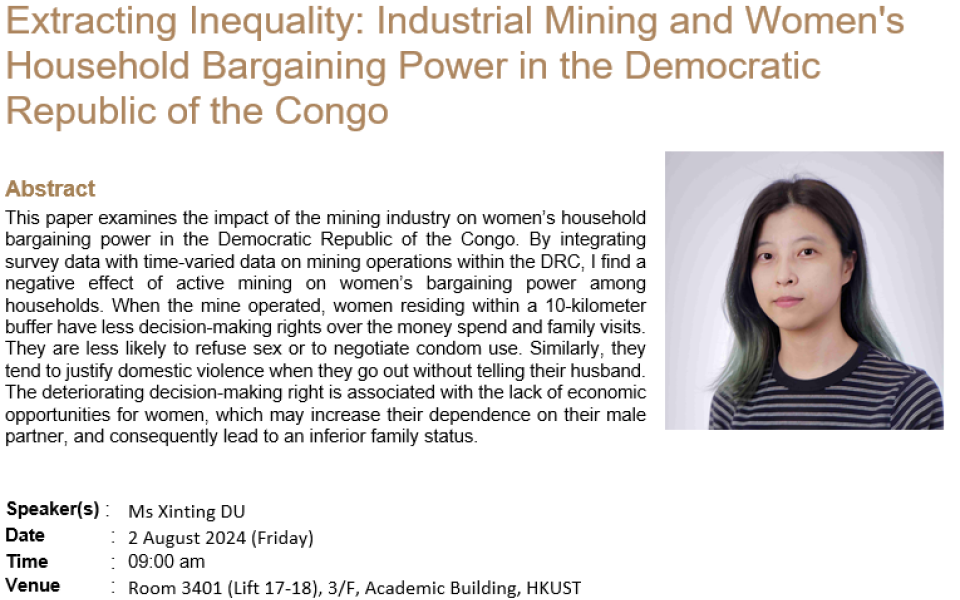Abstract
This paper examines the impact of the mining industry on women’s household bargaining power in the Democratic Republic of the Congo. By integrating survey data with time-varied data on mining operations within the DRC, I find a negative effect of active mining on women’s bargaining power among households. When the mine operated, women residing within a 10-kilometer buffer have less decision-making rights over the money spend and family visits. They are less likely to refuse sex or to negotiate condom use. Similarly, they tend to justify domestic violence when they go out without telling their husband. The deteriorating decision-making right is associated with the lack of economic opportunities for women, which may increase their dependence on their male partner, and consequently lead to an inferior family status.
